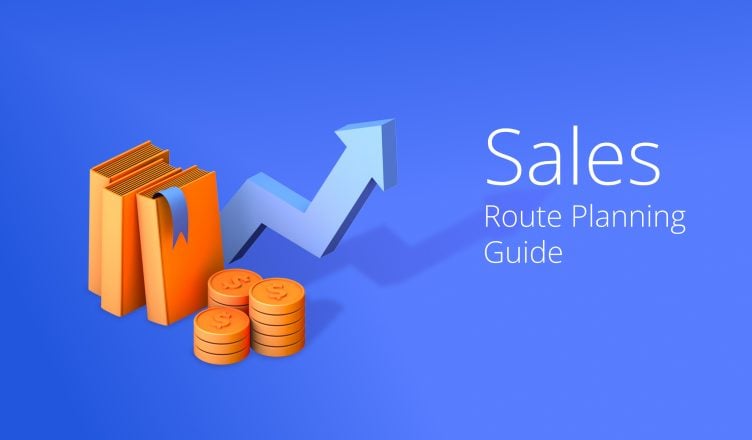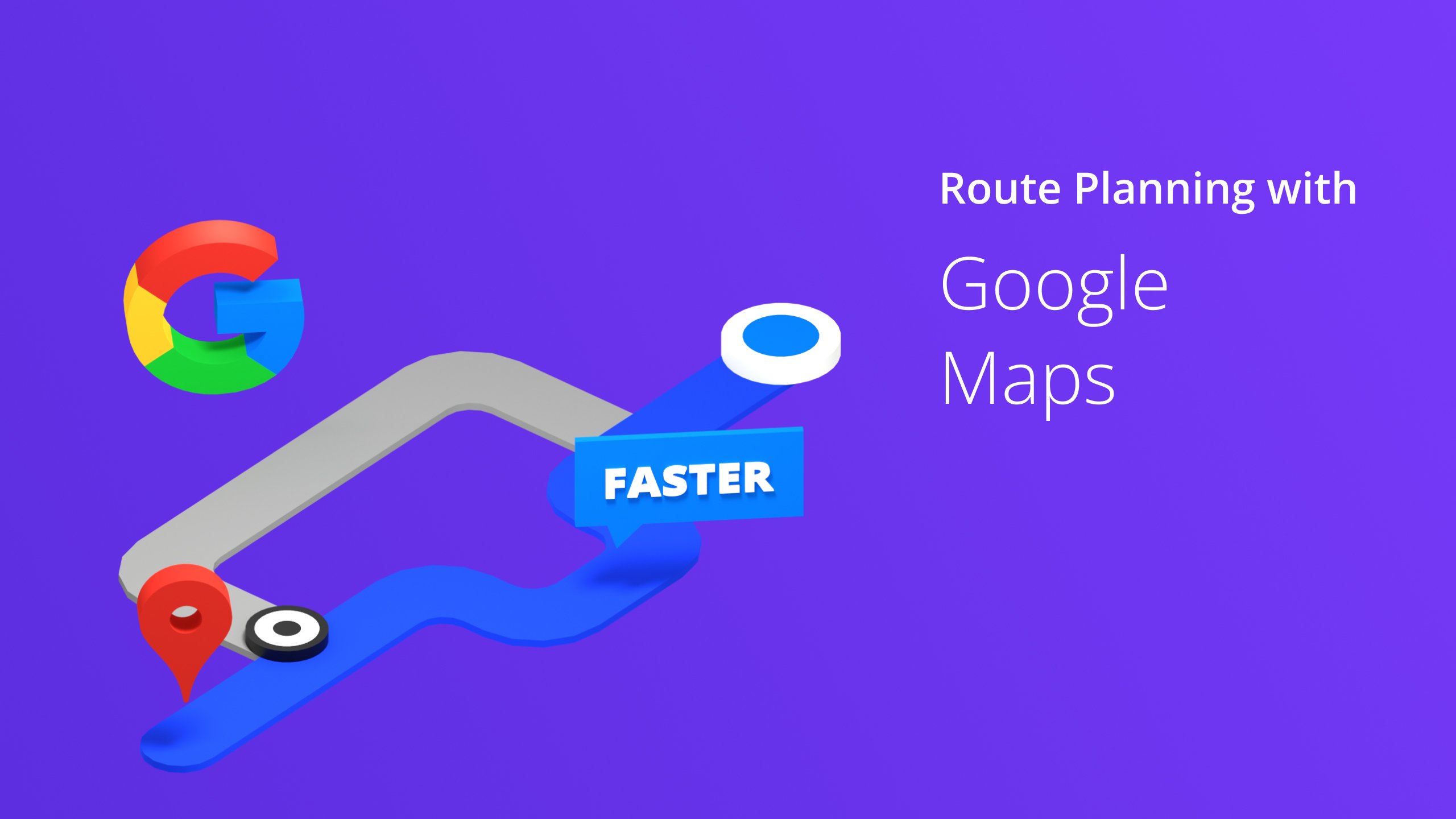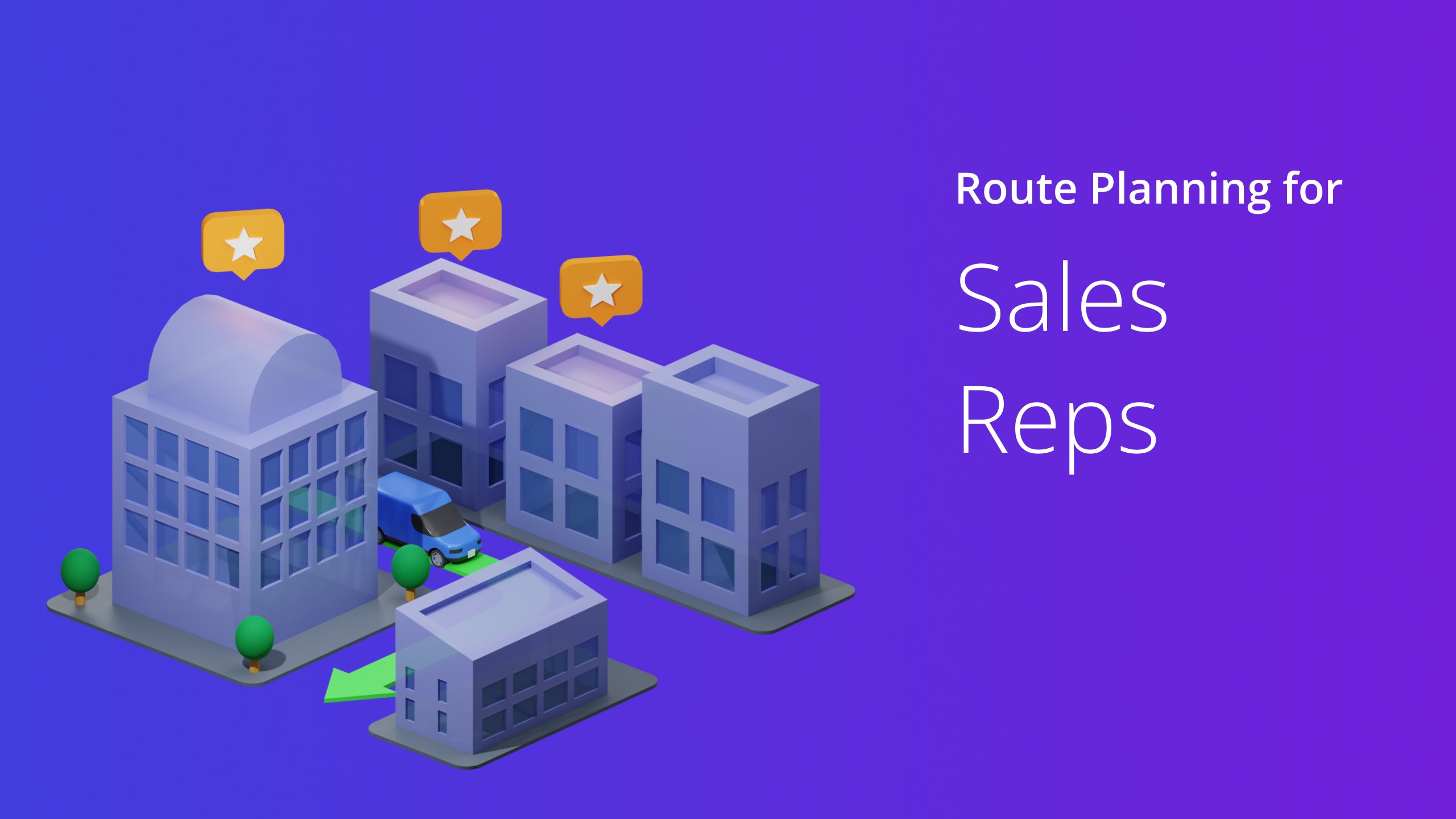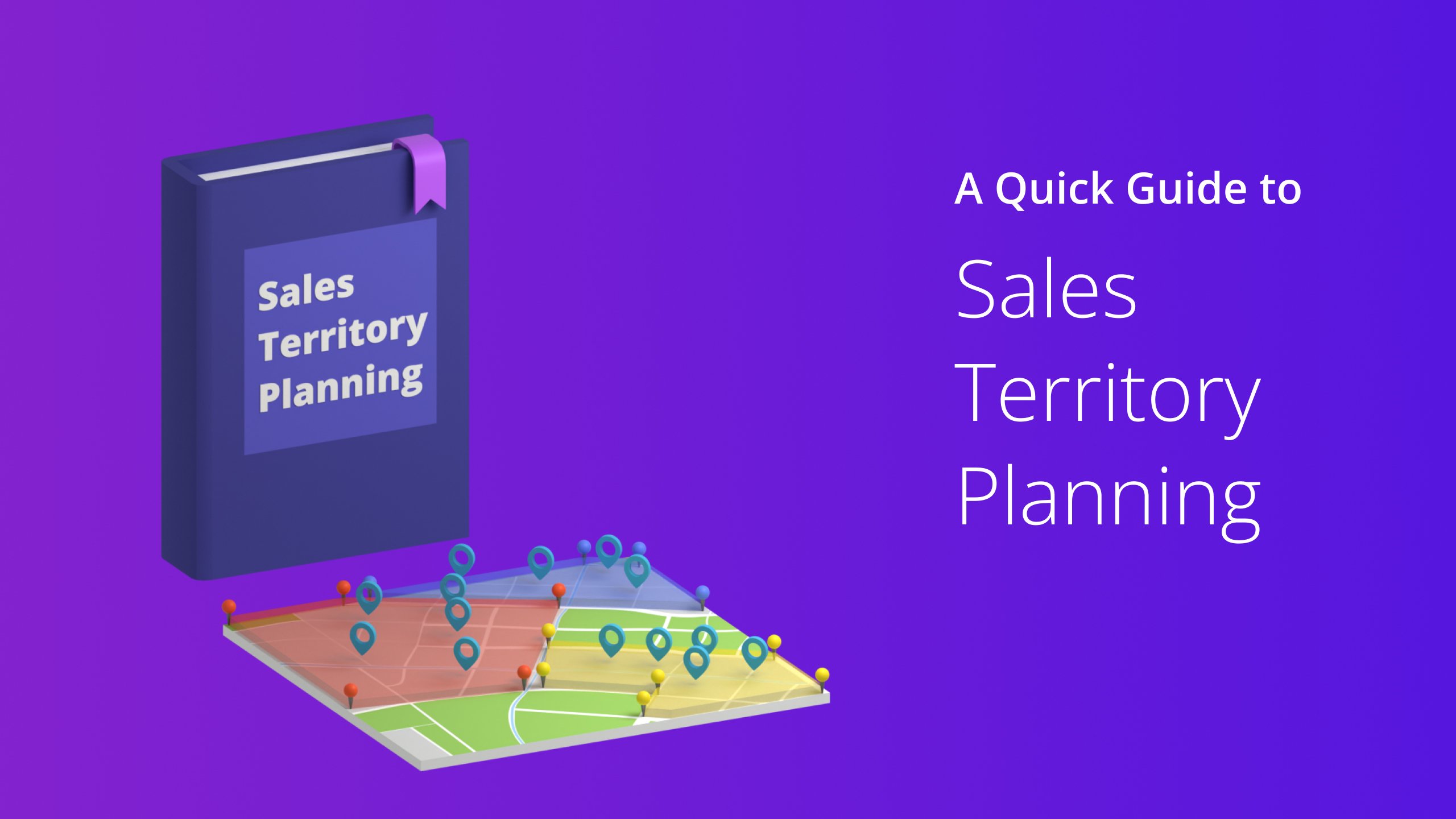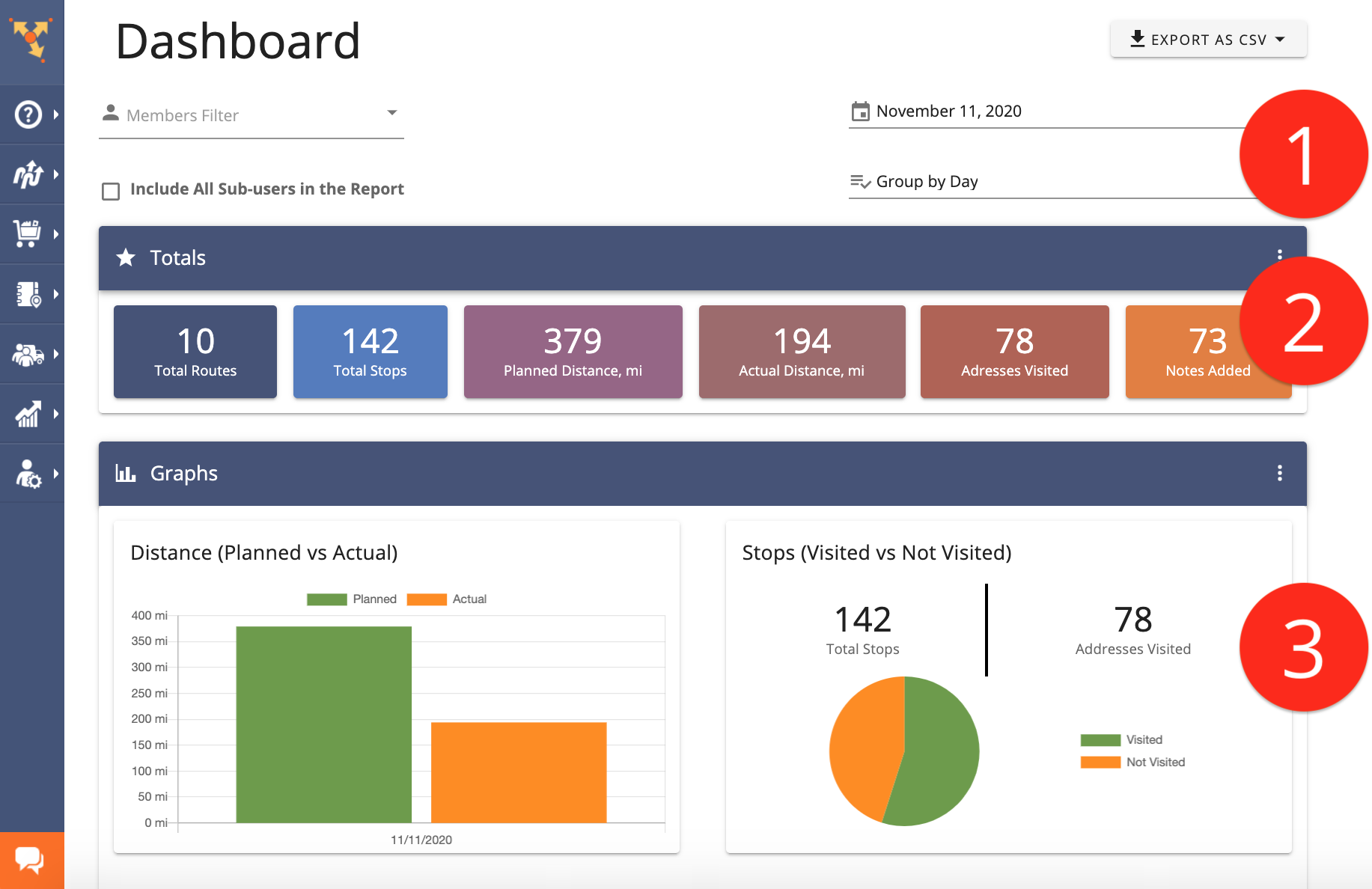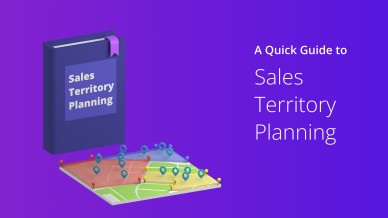Sales route planning is crucial for your field sales strategy and, if done right, can increase your company’s profits simply by connecting field sales reps to high-value opportunities at the right time.
But this isn’t a walk in the park.
Below we cover everything you need to know about effective route planning for sales teams, including benefits, how to plan the most efficient sales route, choosing the right sales routing, and more.
So, let’s get started.
Table of Contents
What Is Sales Route Planning?
Sales route planning is finding the most efficient routes for your field sales reps. In other words, it’s the process of finding the most efficient way for your sales reps to get from Point A to Point B to Point C and so on and determining the order in which they should visit those specific locations using an optimized route.
When done right, effective sales route planning can significantly determine how quickly a salesperson can move from one prospect to the next.
Want To See For Yourself How Route4Me Can Help Optimize Sales Routes?

Why Is Sales Route Planning Important?
As you perform your daily tasks, you face challenges, such as finding a way to not miss out on opportunities, maximizing your time, and market dynamics. All these may result in a poor understanding of your routes. Once this happens, you may find yourself overlooking many opportunities.
Routing in sales planning with the help of a route planner app can get all these challenges out of the way. Below is a quick rundown of the advantages of smart route planning.
- Frees you from wasteful trips and expenses.
- Improves customer service and makes customers happier.
- Improves productivity.
- Gives you complete visibility of your field activities.
- Makes sure you don’t miss out on essential details.
When Is Sales Route Planning Absolutely Necessary?
The following questions will help you determine whether you should put money and time into planning sales routes:
- Are you missing sales goals because you don’t have complete insight into your territories, market dynamics, or customer data?
- Is your team missing opportunities because they are not meeting the right customers?
- Does your team struggle with long delays and lots of unplanned downtimes?
- Are your field sales reps struggling to make data-driven decisions on the field?
If your answer to any of the four questions above is YES, you ABSOLUTELY need intelligent route planning software.
Understanding Customer Data for Effective Route Planning
Effective route planning relies heavily on understanding customer data. This includes analyzing customer locations, order history, and sales performance to identify patterns and trends.
By leveraging customer data, salespeople can create optimized sales routes that prioritize high-value customers, reduce travel time, and increase sales productivity.
To understand customer data, sales teams should consider the following factors:
- Customer Location: Analyze the geographical distribution of customers to identify clusters and optimize routes accordingly. Knowing where your customers are located helps in creating efficient sales routes that minimize travel time and maximize coverage.
- Order History: Review customer order history to identify frequent buyers and prioritize their visits. Frequent buyers are often high-value customers, and prioritizing them can lead to increased sales and customer satisfaction.
- Sales Performance: Analyze sales data to identify high-performing customers and allocate more time for them. By focusing on customers who contribute the most to your sales performance, you can ensure that your efforts are directed towards the most profitable opportunities.
This data-driven approach ensures that sales representatives spend their time wisely and focus on the most valuable opportunities.
Measuring the Success of Sales Route Planning
Measuring the success of sales route planning is crucial to ensure that the strategy is working effectively. To measure success, sales teams can consider the following metrics:
- Sales Productivity: Measure the number of sales calls made, meetings attended, and deals closed to evaluate sales productivity. High productivity indicates that the sales routes are well-planned and effective.
- Travel Time: Measure the reduction in travel time to evaluate the efficiency of sales routes. Less travel time means more time for sales activities, leading to better performance.
- Customer Satisfaction: Measure customer satisfaction through surveys or feedback to evaluate the effectiveness of sales routes. Happy customers are a sign that sales reps are meeting their needs efficiently.
- Sales Performance: Measure sales performance through metrics such as sales revenue, conversion rates, and customer acquisition costs. These metrics provide a clear picture of how well the sales route planning strategy is working.
Regularly reviewing these metrics ensures that the route planning process remains effective and continues to contribute to the overall success of the sales team.
Three Ways to Optimize Routes for Sales
#1 Manual Approach
The manual approach involves planning sales routes using pen and paper or spreadsheets.
The problem with this is that it’s tedious and could take hours. Also, you can’t pinpoint the most efficient sales routes, nor can you prioritize high-value leads during likely hours.
In addition, you would not be able to plan sales visits for the future (say next month). You’ll also have a tough time rescheduling your customer’s meeting.
The manual approach is a colossal waste of time, resources, and money.
So, what can you use if the manual approach doesn’t work? Will Google Maps cut it?
#2 Google Maps
Google Maps is convenient for finding the best routes and is undoubtedly one of the best navigation apps.
But, while Google Maps route planner can help sales reps get from one point to another, it’s not suitable if you need to plan routes for many field sales reps for the following reasons:
- You can’t modify your routes automatically – If a customer reschedules a visitation location, you can’t modify the location asynchronously. Also, once your sales team is on the road, any last-minute change in visitation times would disrupt the visitation order for the day, and it would be difficult to advise the field sales team on the new prospects.
- You can’t track your sales teams in real-time – If you can’t track them, how would you ensure no one’s slacking and going to grab a McDonald’s at the prospect’s expense?
- You can’t schedule multi-stop routes in advance – Your field sales teams might be confused about which client or prospect should be visited first. It also wastes your valuable time.
- It only allows for 10 possible destinations – Google Maps doesn’t allow you to plot more than 10 destinations at a time on a route. So, if you need to plan more than 10 destinations, Google Maps is not the right tool for optimizing sales routes.
- You can’t upload many addresses at once – Which means that you’ll have to input every address manually. Imagine inputting the addresses of 100 customers; that’ll be really stressful.
Using Google Maps as a free route planner to plan optimal routes isn’t as effective as you might have thought earlier. So, what is effective?
#3 Sales Route Planner
A sales route planner optimizes your routes in minutes.
The best sales route planners like Route4Me can help you prioritize clients based on importance or availability time constraints and optimize sales routes for maximum efficiency.
Remember the long process you had to go through when mapping routes manually?
Well, you don’t need all that when using a free route optimizer. You can find the fastest route in minutes, minimize travel time and distance, and optimize schedules with customer data.
Essential Features of Sales Route Planning Software
An efficient route planning software is a crucial tool for optimizing sales routes. When selecting a sales route planner, consider the following essential features:
- Route Optimization: The sales route mapping software should be able to optimize routes based on customer data, traffic conditions, and time windows. This ensures that sales reps are taking the most efficient routes, saving time and fuel costs.
- Real-Time Updates: The software should provide real-time updates to adapt to changing customer requirements or unforeseen circumstances. This flexibility allows sales teams to respond quickly to changes and maintain productivity.
- Collaboration Tools: The sales mapping software should enable collaboration among sales teams to ensure seamless communication and coordination. Effective collaboration tools help in sharing information and making collective decisions.
- Integration with CRM: The sales planning software should integrate with CRM systems to access customer data and update sales records. This integration ensures that all customer interactions are recorded and can be used to inform future route planning.
- Mobile Accessibility: The sales route optimization software should be accessible on mobile devices to enable sales reps to access routes and customer data on-the-go. Mobile accessibility ensures that sales reps have the information they need, no matter where they are.
By considering an intelligent sales routing software, you can significantly enhance sales performance by ensuring that sales reps are always on the most efficient routes.
How Route4Me’s Intelligent Route Planning Software Can Help
If, like millions of companies in the US, your company’s fate largely depends on your field sales reps’ performance, you should invest in making your field sales reps more productive.
Using the best sales route planning and route optimization software like Route4Me is the easiest way to ensure your field sales teams are efficient.
Here’s how Route4Me’s intelligent routing software can help your field sales team close more deals:
Plan Well-Optimized Routes
Route4Me comes with Dynamic Route Optimization™ technology that helps you plan a sales route with accurate directions for your team.
You just need to input the list of addresses (via a spreadsheet, a scanned copy, cloud storage, or even manually) and create a route in 30 seconds.
The route mapping software considers weather, traffic, roadblocks, and avoidance zones while planning routes. This ensures your sales team never gets stuck on the road and always shows up on time.
Optimize Territories to Maximize Sales
It’s challenging to design sales territories most efficiently manually, and you’ll find out that your field sales reps all cover the same regions most of the time.
Route4Me’s route optimization app for sales reps offers a territory management feature that lets you draw and name territories, color them for display on a map, save the regions as groups, and plan the routes according to the territories. There isn’t even a limit to the number of territories you can add.
In addition, you can customize the territories. For example, you can assign VIP clients to certain territories and the rest of your clients to other territories.
Track Your Field Sales Reps
Route4Me’s intelligent route planning software helps you see if your field sales reps are sticking to their routes and staying on schedule.
This is possible with GPS tracking, which allows you to see, in real-time, the speed and location of your field sales rep. That way, you can ensure that no one’s slacking.
Learn the top ten benefits of GPS tracking.
Prioritize Leads
You should focus more on the leads that are likely to close faster. Route4Me offers a color-coding feature that helps you color your leads and set your priorities right.
For example, you can use green to mark hot leads and orange for cold leads. Such visualization will help you figure out where you should focus more.
Robust Performance Management System
We all love recognition; we love to feel important and rewarded for our work. So, if you can reward your team members for their work, you’re incentivizing them to do more. But on what basis would you reward your team members, and how would you make it transparent?
Route4Me offers a reporting and analytics feature that gives you data about how many destinations or prospects are visited in a day, the time taken at each stop, and more.
You can use such data to identify the top performers and reward them accordingly. This would somewhat level the playing field for your team members and give them the notion that you genuinely care about their personal growth.
Store Critical Information
Route4Me comes with an ‘Add Note’ feature that enables your salespersons to include crucial information about a client in the form of text, images, and audio/video to a route from their smartphones. This comes in handy when making future visits to the same client.
Other Benefits
There are many other advantages of using Route4Me for sales route planning, such as:
- Improves collaboration as the software is cloud-based and can be accessed from anywhere at any time
- Improves sales forecasting
- Balances your territories nicely
- Makes region management seamless
How to Use Route4Me for Sales Route Planning
Planning a multi-stop route with Route4Me is pretty straightforward. Here’s a step-by-step guide on how to plan a sales route with Route4Me.
So, are you ready to boost your sales reps’ efficiency and improve your bottom line? Use our seven-day free trial and see how Route4Me route management software can make your field sales planning and management a breeze.
Frequently Asked Questions (FAQs) about Sales Route Planning
What is route planning in sales?
How to create a sales route?
What is the route planning process?
What features to consider when choosing sales route planning software?
What is the best route planner for sales?
Final Thoughts about Sales Route Planning
In summary, an effective sales route plan is crucial in optimizing sales operations. By strategically mapping out your routes, you can reduce travel time, save on fuel costs, and ultimately increase your sales team’s productivity.
Additionally, it allows you to provide better service to your customers by ensuring timely visits and minimizing the risk of missed opportunities.
To create the best sales route, start by analyzing your territory, understanding your customers’ needs, and leveraging technology such as Route4Me route planner for sales route optimization. Regularly review and adapt your plan to accommodate changes in your customer base, market dynamics, and unforeseen circumstances.
Remember, a well-planned sales route benefits your company’s bottom line and contributes to a more efficient and satisfied sales team. You can stay ahead in the competitive sales world by implementing these strategies and continuously refining your approach.
Want To See For Yourself How Route4Me Can Help Optimize Sales Routes?

